Meet our speakers for The Diabesity symposium, Friday, 17 March 2017, Auckland, New Zealand.
For registration and to read more about our event:
The diabesity crisis: how can we make a difference?
Visiting speakers
Professor Rachel Batterham, University College London
 Topic: Targeting the gut to treat obesity and type 2 diabetes
Topic: Targeting the gut to treat obesity and type 2 diabetesProfessor Rachel Batterham established and leads the University College London Hospital Bariatric Centre for Weight Management & Metabolic Surgery and the University College London Centre for Obesity Research. She holds a prestigious National Institute of Health (NIHR) Research Professorship (2016-2021) and is recognised internationally for her research focused on body weight regulation.
Her work has played a key role in identifying gut hormones as tractable therapeutic targets for obesity. She has received several prestigious awards including the Andre Mayer award from the World Obesity Federation (2016), the Diabetes UK Rank Fund Nutrition Prize (2015), the Lilly Scientific Achievement Award from The Obesity Society (2014), and the Linacre Medical from the Royal College of Physicians (2010).
Professor Louise Baur, University of Sydney
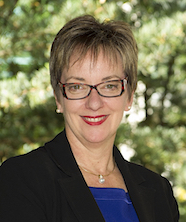 Topic: Preventing obesity in early childhood: lessons from Australia, New Zealand and beyond
Topic: Preventing obesity in early childhood: lessons from Australia, New Zealand and beyondLouise Baur is the Professor of Child and Adolescent Health at the University of Sydney and is a consultant paediatrician at the Sydney Children's Hospitals Network where she is an active member—and former Head—of Weight Management Services. She is Director of the National Health and Medical Research Council Centre of Research Excellence in the Early Prevention of Obesity in Childhood.
Louise has made research contributions to the prevention of obesity, especially in early childhood; the impact of food marketing to children; the antecedents of obesity and the metabolic syndrome in young people; the complications of obesity; and the management of obesity and related disorders in a variety of clinical settings.
Professor Alex Brown, University of South Australia
Topic: Exploring and overcoming type 2 diabetes inequalities in indigenous peoples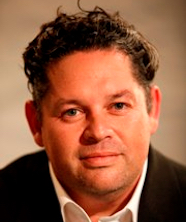 A world-recognised leader in Indigenous health, Alex Brown has spent many years researching chronic conditions which are the biggest contributor to the 10-year life expectancy gap between Indigenous and non-Indigenous Australians.
A world-recognised leader in Indigenous health, Alex Brown has spent many years researching chronic conditions which are the biggest contributor to the 10-year life expectancy gap between Indigenous and non-Indigenous Australians.
As head of the Wardliparingga Aboriginal Research Unit at the South Australian Health and Medical Research Institute, Professor Brown is leading a major National Health and Medical Research Council funded research project investigating the diabetes epidemic taking place in the Aboriginal and Torres Strait Islander population.
Chronic disease like diabetes is a fundamental health challenge, with up to 30 per cent of Aboriginal and Torres Strait Islander people having Type 2 diabetes. In many communities more than half of all adults over the age of 50 are affected.
Professor Brown has championed improving the health of Aboriginal and Torres Strait Islander people as a moral, ethical and cultural obligation, emphasising prevention and rehabilitation.
Professor Dave Lubans, University of Newcastle
 Topic: Sitting less, HIITing more and everything in between: physical activity for obesity prevention among adolescents
Topic: Sitting less, HIITing more and everything in between: physical activity for obesity prevention among adolescents
Approximately a quarter to a third of young people in Australia report moderate- to high-level of psychological distress at some point in their adolescence. Dave says, "There's no question that our society has changed and that young people are more engaged in screen-based recreation, they are doing less physical activity, and they are more likely to be overweight or obese—three times more likely than previous generations.
"If you put all those things together, it isn't surprising that the mental health of a large percentage of young people isn't optimal. Physical activity represents such a great opportunity; if provided in the right context, it can help reduce stress, provide an opportunity for social interaction and enhance self-concept."
Invited speakers
Dr Kirsten Coppell, University of Otago
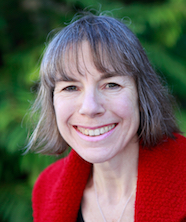 Topic: Can primary care contribute to halting and reversing the diabetes epidemic?
Topic: Can primary care contribute to halting and reversing the diabetes epidemic?Kirsten is a specialist in public health medicine and has also trained and practised as a general practitioner in New Zealand and the UK. During her public health medicine training Kirsten became involved with diabetes quality of care improvement initiatives. She has undertaken diabetes and diabetes-related research at Edgar Diabetes and Obesity Research since it was established in 2003, and has contributed to national diabetes clinical and retinal screening guidelines.
Kirsten's research interests include the translation of clinical trial evidence into real world settings, particularly in relation to diabetes prevention.
Professor Wayne Cutfield, University of Auckland
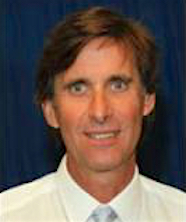 Topic: Bottoms up: the gut microbiome and childhood obesity
Topic: Bottoms up: the gut microbiome and childhood obesityWayne Cutfield is Professor of Paediatric Endocrinology at the Liggins Institute, and an expert on insulin sensitivity and action in children. He leads clinical research which shows how environmental influences early in life can affect childhood growth and development in ways that could lead to chronic conditions in adult life.
A former director of the Liggins Institute, he is now Interim Director of the National Science Challenge: A Better Start—a multi-institution research programme based at the Institute.
Professor Cutfield graduated from The University of Auckland School of Medicine. He is a former Director of Endocrinology at Auckland's Starship Children's Hospital, where he was responsible for innovations in the care of children with hormone based conditions such as diabetes and growth disorders. He has been involved in the training and administration of training of junior doctors in Paediatrics and Paediatric Endocrinology through the Royal Australasian College of Physicians and the Endocrinology Specialist Advisory Committee.
Professor Dave Grattan, University of Otago
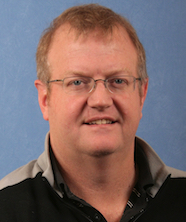 Speaker: Hot topic debate
Speaker: Hot topic debateDave is professor of Anatomy and a former head of this department at the University of Otago. He is well-published in the fields of endocrinology and neuroscience and has won a number of prestigious awards, including the Mortyn Jones Medal of the British Society for Neuorendocrinology, and the Distinguished Investigator of the Year for the Otago School of medical Sciences in 2011.
Professor Grattan is interested in how obesity is associated with changes in the way that the brain processes metabolic information from the body. The hormone leptin normally acts in the brain to suppress appetite, and increase energy expenditure. By providing information about energy stores to the brain, it allows maintenance of a relatively constant body weight despite wide fluctuations in food consumed and exercise completed.
In obesity, the brain becomes less sensitive to the feedback actions of leptin. By studying how a similar leptin resistance develops during pregnancy, this link provides us with a novel understanding about interactions between key metabolic and reproductive hormones in the brain, and how these impact on serious disease conditions.
Associate Professor Jeremy Krebs, University of Otago
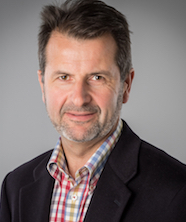 Chair: Is surgery the answer for diabetes?
Chair: Is surgery the answer for diabetes?Jeremy is an Endocrinologist with a particular interest in obesity and diabetes. He trained in endocrinology at Wellington Hospital in New Zealand and then did his doctorate with the Medical Research Council—Human Nutrition Research unit in Cambridge England. His thesis was on the impact of dietary factors on obesity and insulin resistance.
Associate Professor Krebs returned to New Zealand in 2002 to take up a consultant endocrinology post at Wellington Hospital, where he is Clinical Leader of Endocrinology and Diabetes. He is also an Assoc Professor with the University of Otago, and previously the Director of the Clinical Research Diploma at Victoria University.
As well as clinical and teaching activities, Associate Professor Krebs maintains active research interests in the area of obesity and diabetes, with a focus on nutritional aspects, bariatric surgery and diabetes service delivery.
Professor Jim Mann, University of Otago
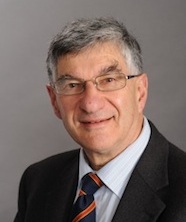 Chair: Is it too late by adulthood?
Chair: Is it too late by adulthood?Speaker: Hot topic debate
Jim Mann is the Director of the Healthier Lives National Science Challenge and co-director of the Edgar Diabetes and Research Centre. He has been a professor in human nutrition and medicine at the University of Otago and consultant physician (endocrinology) in Dunedin Hospital for 25 years. He is also Director of the World Health Organization Collaborating Centre for Human Nutrition, the New Zealand-China Non-Communicable Diseases Research Collaboration Centre, and Principal Investigator for the Riddet Institute, a national Centre of Research Excellence.
Dr Rachael McLean, University of Otago
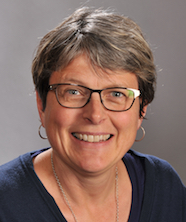 Chair: Are there new strategies we can use?
Chair: Are there new strategies we can use?Rachael is a public health physician with an interest in nutritional epidemiology and public health. She is interested in the relationship between food, nutrition and chronic disease, particularly obesity, and cardiovascular disease.
Current research interests include monitoring population dietary sodium intake, public health approaches to dietary sodium reduction, and the relationship between dietary sodium and cardiovascular disease.
Professor Tony Merriman, University of Otago
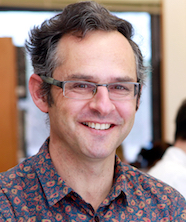 Topic: The role of genetics in diabetes and obesity
Topic: The role of genetics in diabetes and obesityTony is a member of the Health Sciences Pacific Strategic Group and is also a member of Edgar Diabetes and Obesity Research.
His research group takes a genetic approach to understanding the biology of human disease, including:
- Gout—the genetic causes and how these genes interact with the environment
- Genetics of autoimmune disease (mainly gout and rheumatoid arthritis)
- A genetic relationship between rheumatoid arthritis and schizophrenia
- Copy number variable genes and disease
Tony currently supervises PhD candidates investigating genetic variations affecting obesity.
Associate Professor Rinki Murphy, University of Auckland
 Topic: Enhancing biological resilience to obesity and type 2 diabetes
Topic: Enhancing biological resilience to obesity and type 2 diabetesRinki is a consultant diabetes physician working in Auckland and Counties Manukau District Health Boards, at the University of Auckland, and as a medical advisor for Diabetes Auckland. She has been involved in guideline development for monogenic diabetes and weight management.
Rinki's research spans basic molecular science, physiology, and clinical research, with membership of multiple national and international collaborations in observational studies and clinical trials.
Professor Cliona Ni Mhurchu, University of Auckland
 Topic: Best-practice policy approaches to obesity prevention
Topic: Best-practice policy approaches to obesity preventionCliona is Professor of Population Nutrition at the National Institute for Health Innovation, University of Auckland. Her research programme evaluates the impact of population diet interventions and policies, including food taxes / subsidies, front-of-pack nutrition labels, healthier food reformulation, and restrictions on marketing of unhealthy food to children.
Cliona is Director of a 5-year Health Research Council research programme Dietary Interventions: Evidence & Translation, Principal Investigator of a project to co-design and evaluate a healthy lifestyle support mobile app for Māori and Pasifika, and Deputy Director of the Healthier Lives National Science Challenge.
Associate Professor Louise Signal, University of Otago
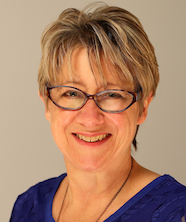 Topic: Kids'Cam: The obesogenic world of New Zealand children in pictures
Topic: Kids'Cam: The obesogenic world of New Zealand children in picturesLouise is a social scientist with a PhD in Community Health from the University of Toronto. She has worked and conducted research in the field of health promotion for 25 years in a range of roles, including Senior Advisor (Health Promotion) for the New Zealand Ministry of Health.
Louise is Director of the Health Promotion and Policy Research Unit, at the University of Otago, Wellington. Her current research includes studying children's lived environment to explore their exposure to advertising, alcohol and junk food and developing appropriate interventions for change.
Louise is also the Regional Director of the South West Pacific Region of the International Union for Health Promotion and Education.
Associate Professor Rachael Taylor, University of Otago
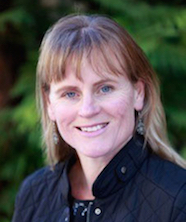 Topic: Is sleep the answer to childhood obesity?
Topic: Is sleep the answer to childhood obesity?Rachael Taylor is Director of the Edgar Diabetes and Obesity Research Centre. She leads or co-leads a number of large intervention projects testing different approaches to effective obesity prevention in children and adolescents. One of her main areas of interest is how sleep may contribute to effective weight management during growth.
Dr Lisa Te Morenga, University of Otago
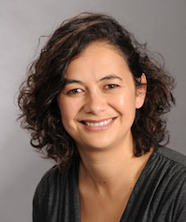 Topic: mHealth for diabetes and obesity prevention in Māori and Pacific communities
Topic: mHealth for diabetes and obesity prevention in Māori and Pacific communitiesLisa Te Morenga (Ngāti Whātua, Te Rarawa) is a Senior Research Fellow in the Department of Human Nutrition at the University of Otago. She is affiliated with the Riddet Institute, is a member of the Edgar Diabetes and Obesity Research Centre, and is a Co-Principal Investigator for Healthier Lives.
Her research specialties include:
- Epidemiological studies
- Dietary intervention studies
- The effects of macronutrient composition on physiological endpoints associated with increased risk of preventable diseases including obesity, the metabolic syndrome, diabetes and cardiovascular disease
- Primary macronutrient interests include dietary sugars, dietary fibre, and dietary protein

